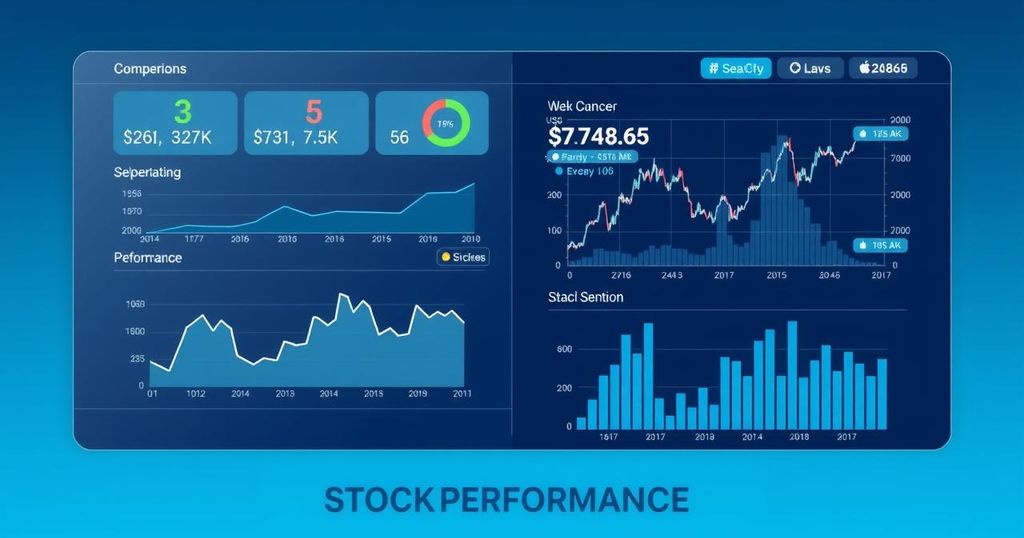Palantir vs. Microsoft: The Superior AI Stock Investment
This article compares the AI stocks of Palantir Technologies and Microsoft, highlighting their growth trajectories and valuations. Palantir’s recent acceleration in revenue and expansion in both government and commercial sectors is contrasted with its high valuation concerns. Microsoft, with its strategic investments in AI and a more attractive valuation, is presented as the better investment choice in the AI sector.
Artificial intelligence (AI) is revolutionizing multiple industries, with businesses investing heavily to harness its potential. AI-powered software can automate repetitive tasks, enhancing the productivity of knowledge workers and assisting decision-makers in consolidating vital data for quicker, informed choices. The enterprise AI software market is projected to soar from $98 billion in 2024 to a staggering $391 billion by 2030, according to ABI Research, with leaders like Palantir Technologies and Microsoft at the forefront of this growth.
Palantir Technologies has distinguished itself by developing software that consolidates data across an organization, extracting actionable insights for users. Its recent introduction of the Artificial Intelligence Platform (AIP) allows users to interact with data through natural language, further accelerating its growth. In 2024, Palantir reported a remarkable 29% revenue growth year-over-year, with even more impressive results in the fourth quarter: a 36% revenue rise and a 45% profit margin. Looking forward, management anticipates a revenue increase of 31% and an adjusted operating margin of 42% by 2025.
The company operates primarily through two segments: government and commercial. Initially focused on U.S. military challenges, the government segment remains the largest revenue source. However, with potential cuts in government spending looming due to budgetary constraints, Palantir faces challenges. Despite this, increased efficiency demands could boost its software’s necessity as workforce reductions occur, and Palantir’s recent commercial client expansion indicates promising revenue growth.
On the flip side, Palantir’s stock valuation remains a concern. Currently trading at over 70 times its projected 2024 revenue and 55 times its expected 2025 sales, its high valuation casts a shadow over potential growth when compared to historical metrics.
Meanwhile, Microsoft has solidified its place as an AI frontrunner through significant investments, including $10 billion in OpenAI. Microsoft’s cloud platform, Azure, has experienced remarkable growth, with AI services revenue skyrocketing by 157% year-over-year. This surge reflects the demand for AI solutions that businesses increasingly seek to implement. Microsoft is making strategic investments, planning $80 billion in capital expenditures, mostly focused on AI data centers.
Through developing AI assistants branded as Copilot, Microsoft integrates AI across its products like Microsoft 365 and Dynamics 365, also allowing businesses to create customized AI applications. Although its growth rate is slower than Palantir’s, Microsoft offers a more appealing valuation, with a stock price under 11 times its trailing sales and about 29 times next year’s earnings estimates. This valuation, combined with its leading position in both cloud computing and enterprise software, presents a compelling case for investors.
Comparing these two stocks reveals Microsoft as a more attractive investment option, especially with the recent market corrections observed in both stocks. While Palantir showcases impressive growth, its high valuation may deter potential investors, whereas Microsoft offers a promising growth trajectory with a more reasonable stock price.
In conclusion, while both Palantir Technologies and Microsoft are pivotal players in the booming AI market, Microsoft emerges as the more compelling investment choice. Despite Palantir’s acceleration in growth and revenue, its steep valuation raises concerns. Conversely, Microsoft’s sustainable business practices, strong growth in Azure’s AI services, and reasonable stock valuation position it as a potentially profitable long-term investment. The current market offers a unique opportunity for investors to capitalize on the strengths of these AI titans.
Original Source: www.fool.com




Post Comment